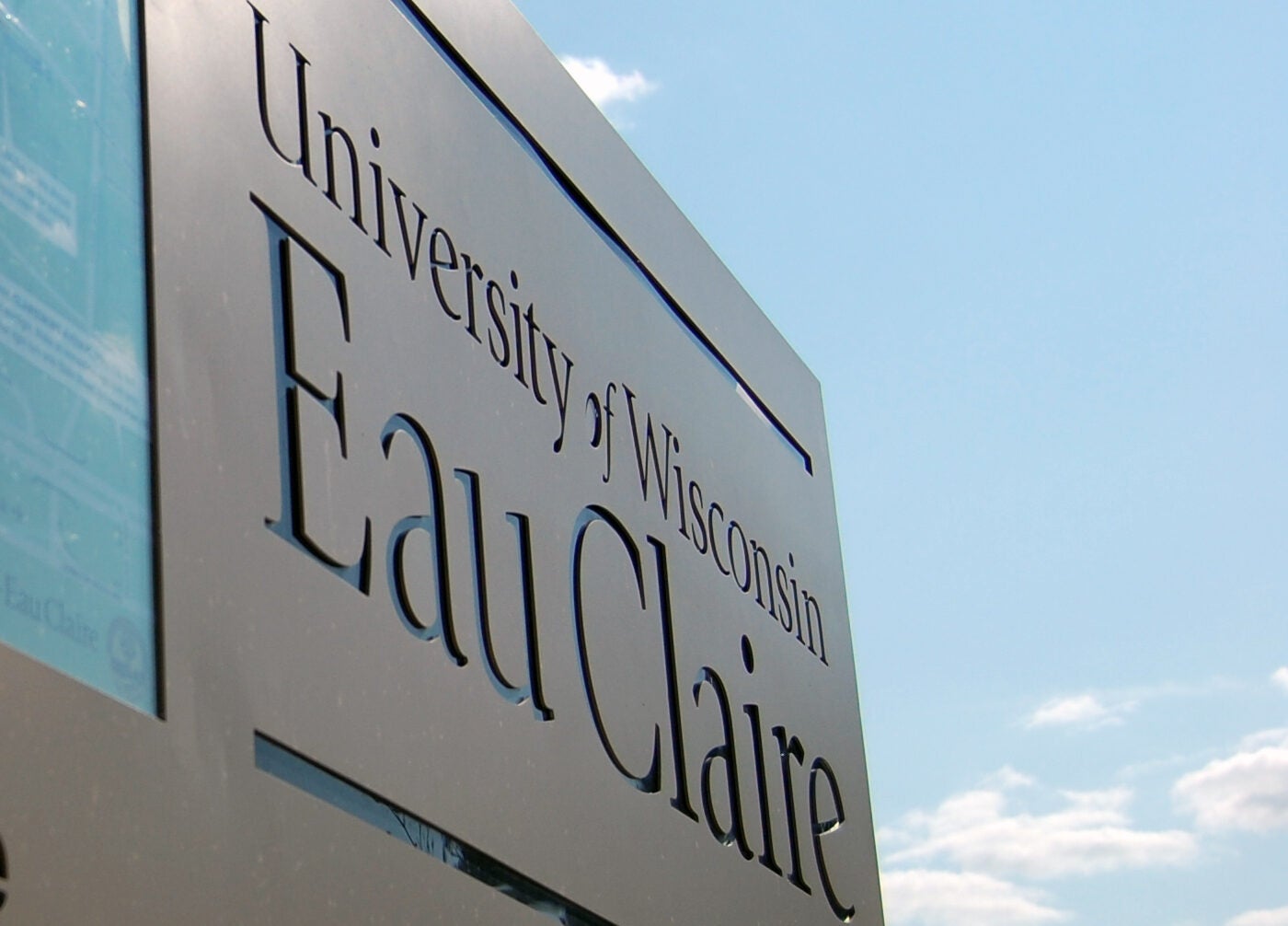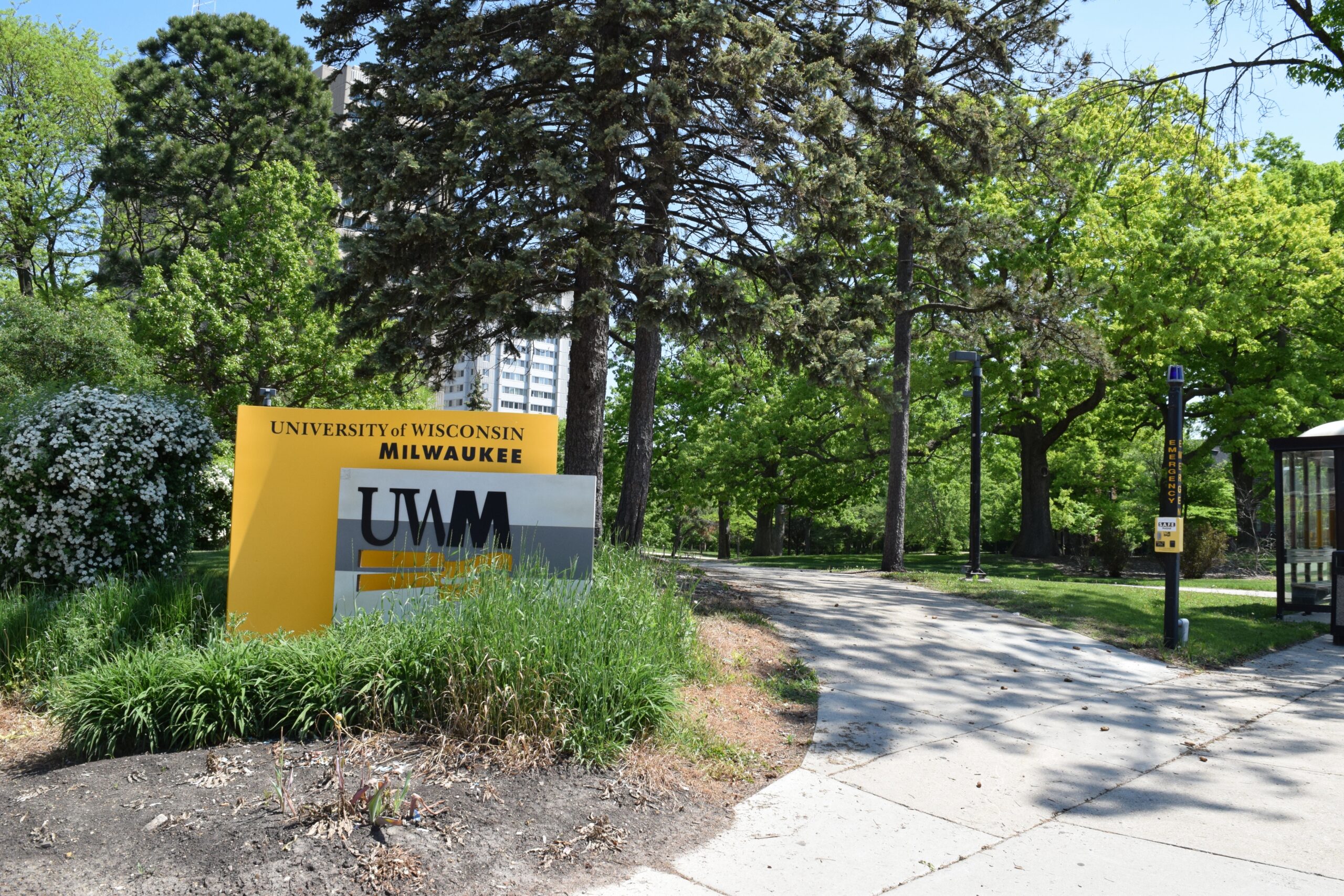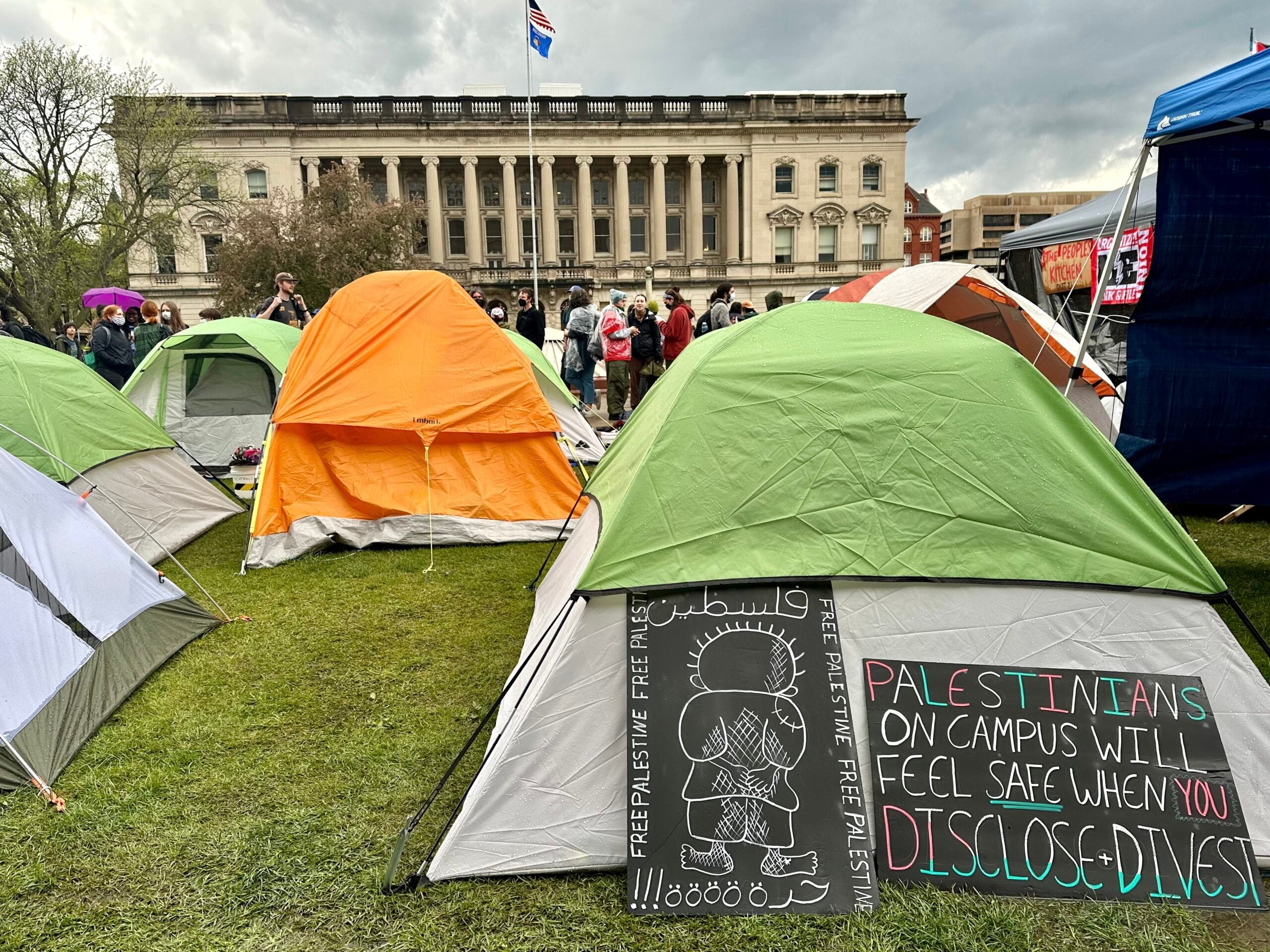In an effort to cut costs for college students, the University of Wisconsin-Eau Claire is working to encourage instructors to move away from traditional textbooks and build classes around open-source educational materials.
This summer, UW-Eau Claire will recruit 15 instructors to continue a pilot program to design courses around what are known as open educational resources (OER). They can include digital textbooks or research articles published in journals that are free to the public.
Jill Markgraf is the director of the McIntyre Library at UW-Eau Claire and helped launch an open-source pilot program for classroom materials in 2020. Markgraf said a lot of textbook content is created by professors and researchers at universities. She said that material is then packaged by large, national publishers and sold to students.
Stay informed on the latest news
Sign up for WPR’s email newsletter.
“What if we could sort of cut out the middleman in a way and create the content, make it available out there?” asked Markgraf. “We all share it. We all reuse it. We all revise it to meet our needs and make it available that way.”
Lisa Quinn-Lee is an associate professor of social work at UW-Eau Claire. She said she had looked into designing courses with open-source material before, but found she didn’t have the time to find and vet it.
“I always worry about, you know, is this copyrighted?” said Quinn-Lee. “Can I use it? You know, what is really free to use? What is free to edit and use?”
Quinn-Lee said using a wider variety of source material has also given her more flexibility to cater social work material to fields students are pursuing.
“The class that I teach has all levels of students,” said Quinn-Lee. “And so, by drawing on lots of different resources and content through OER, I was able to better fit it to the needs of my various students in this one class.”
The pilot program offers stipends of between $500 and $1,500 to instructors to work with the library and the campus Center for Excellence in Teaching and Learning to search out OER materials and design fall courses during the summer months. Markgraf said the stipends come from a fee students pay for a campus textbook rental program.
OER initiatives have been underway at other UW System campuses like UW-Madison, UW-Stout, UW-River Falls and UW-Milwaukee.
UW-Milwaukee psychology professor Diane Reddy also directs the campus Center for Excellence in Teaching and Learning. She said in 2020 students taking courses using OER materials saved a combined $686,462.
Reddy said helping students save on textbooks was especially important during the COVID-19 pandemic because many lost campus jobs when universities shut down for part of the year.
“It’s a cost savings for the students, but it’s about equity,” said Reddy. “It’s about giving them the resources that they may not otherwise be able to access right away. They don’t have to wait for financial aid.”
She said OER materials are used in all sections of Psychology 101 on campus and that the textbook it replaced used to cost students $169.
Reddy said in the early days of the OER movement, there were concerns about the quality of open-source materials as opposed to those coming from large, established publishers.
“Well, you know, quality is always, I think, the major thing that we’re all concerned with,” said Reddy. “But who writes the textbooks? It’s people like me, right? And who writes the open textbooks? It’s people like me.”
While more instructors and institutions may be turning to OER materials for college courses, a 2020 survey conducted by Student Monitor showed that only 8 percent of 1,276 students used OER materials in any of their classes.
Wisconsin Public Radio, © Copyright 2025, Board of Regents of the University of Wisconsin System and Wisconsin Educational Communications Board.





